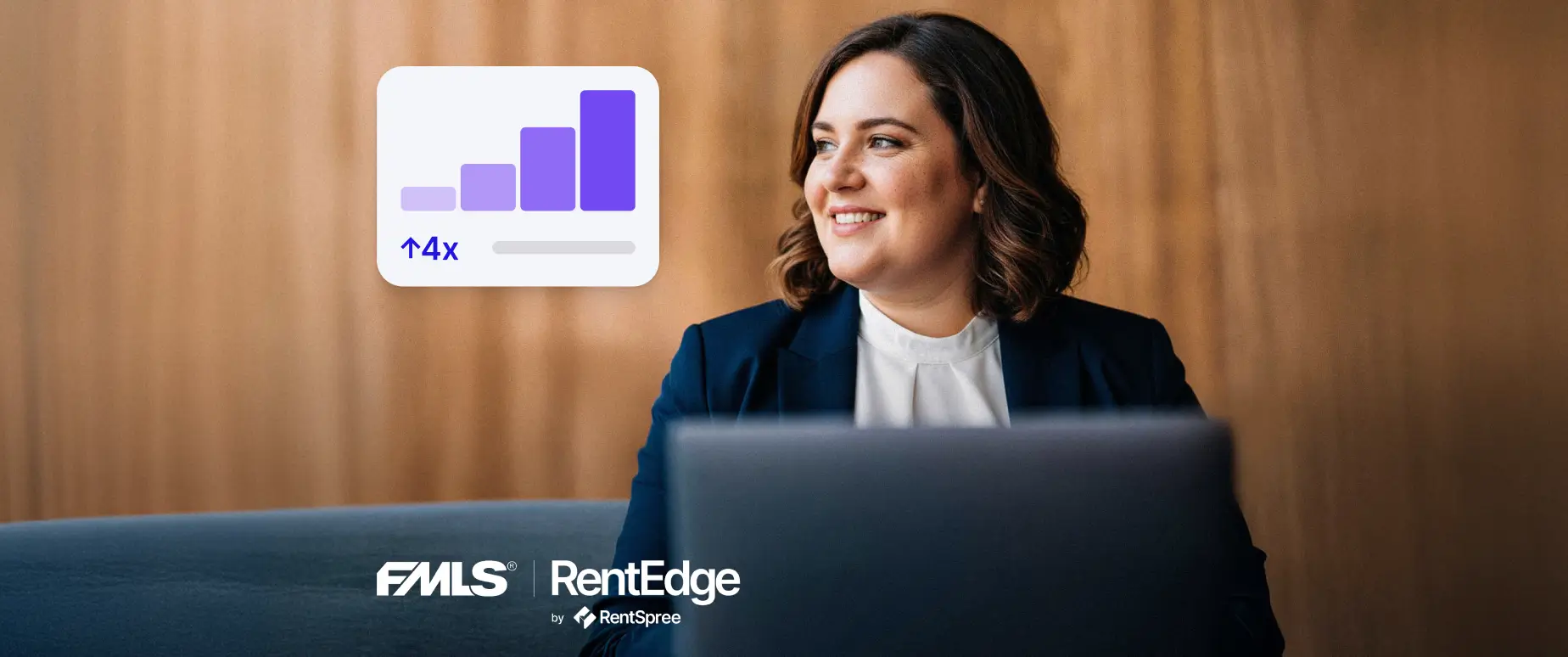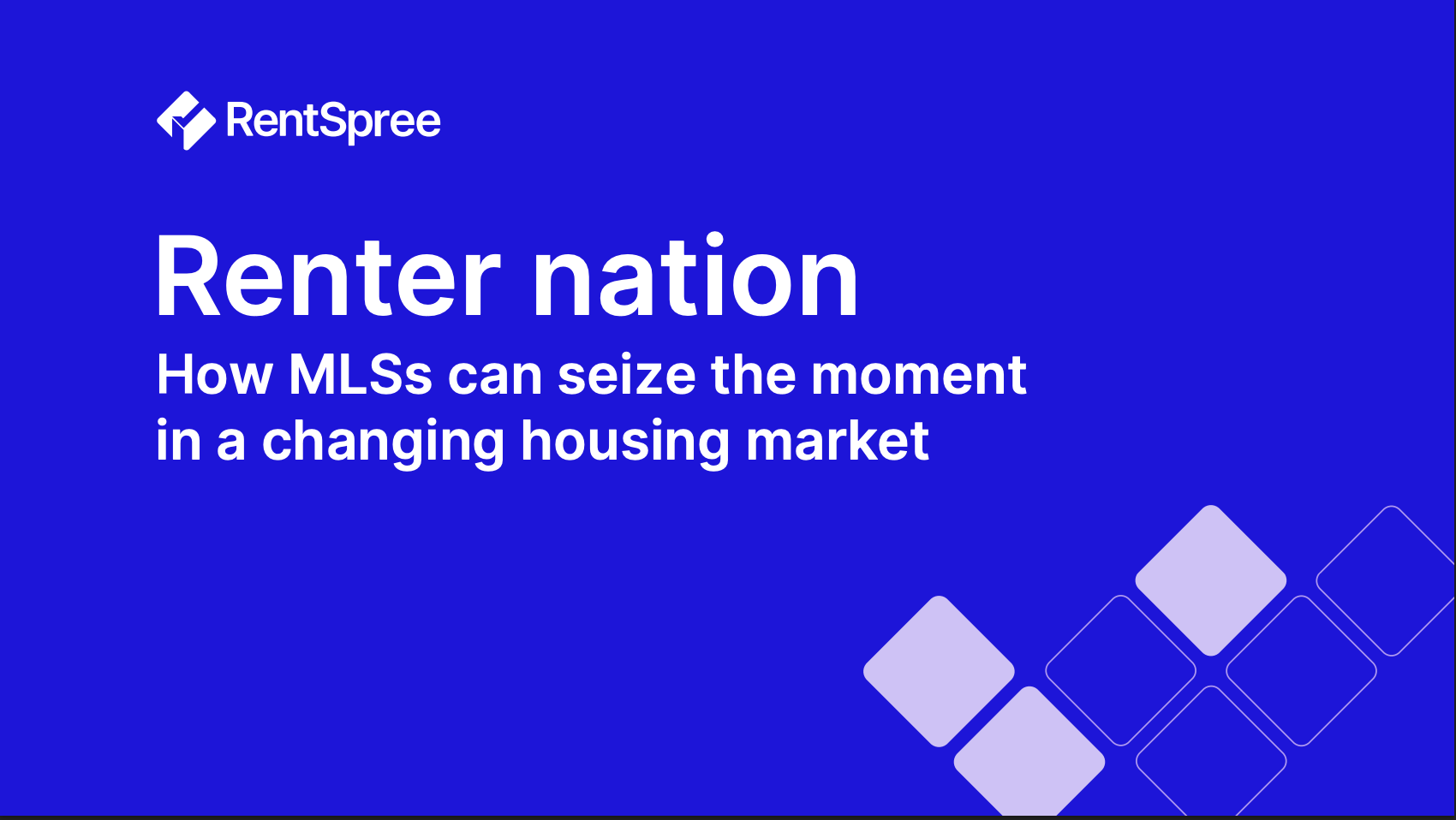It’s Closing Time is the RentSpree podcast, hosted by CEO Michael Lucarelli and featuring insightful conversations with some of the industry’s leading voices. In this episode, Lucarelli talks with CEO and founder of Audience Town Ed Carey about his company’s advertising products, their plans for the future, and how real estate agents can use data to fuel growth in their businesses.
For many agents, it can be overwhelming to navigate the sheer number of tech tools and strategies available for marketing and promoting a real estate business. According to Ed Carey, founder and CEO of Audience Town, a vertical advertising technology business, “What we're building is a data and advertising platform to understand and reach consumers at every point along that home journey that they're on, whether they're buying, selling, or renting. We make it easier to reach them and communicate with them with marketing and advertising.”
The number one problem Audience Town set out to help with was knowing who's moving and when, said Carey. “Our observation was that many people working in real estate don't really know the answers to those questions. They're kind of stuck with a cluttered market of lead gen and are forced to just buy their leads or buy their customers from other companies—sometimes big powerful companies like CoStar and Zillow.”
“Data can actually teach you who might be moving in the future so you can communicate to them earlier,” said Carey. Such data can indicate “who's moving, what are their characteristics or profiles, and what are the life events they're experiencing? What are their demographics, income and so on?”
Another thing data can do, according to Carey, is provide information about the motivation for moving, as well as other details. “Where are people moving? When are they moving? Why are they moving? You need data to figure that out. Otherwise you're kind of stuck buying leads from companies you don't like or understand.”
Carey says that most platforms start by selling leads to supplement existing agent CRMs and lead management systems. “So think of it as a ‘birds of a feather’ type of strategy. If there are 500 people in your email database who like you and have worked with you, who are 500 people that look like them, who you don’t know yet? That’s where advertising can come in.”
“What we've discovered over the years we've been doing this,” said Carey, “is that trying to just provide more leads is hard and sometimes fruitless.” Each year 150 million real estate leads are generated in the United States. “So we figured that our business needed to be insight driven. Who is your customer today? What are they interested in? Otherwise you’re buying leads and you’re overpaying.”
Applying data to the world of real estate
Carey first got interested in the real estate niche when his wife became a real estate agent many years ago. “She was brought into a training session learning how to use digital advertising to attract young families moving out of New York City. And then she called me and said, ‘Wow, it seems like there's a lot of interest in this, and I know you know a lot about it. Maybe you could help them.’ And that was an Aha.”
As he learned more about real estate, Carey found that the industry was frequently being disrupted by both technology companies and consumer behavior. “There's a lot of data in the industry. There's MLS data, there's CRM data, there's website data, and there seem to be trillions of websites. Everybody's got a website or three; all those websites are data signals. And a lot of people move every year.”
After two seed rounds, Audience Town has raised a little over $9 million in funding. According to Carey, the early days of COVID saw their platform working more in proptech, since many agents were doing less marketing and advertising due to the high demand from buyers and the reduced need for marketing.
“When you know 40 million people move every year across 120 million properties in the United States, that’s actually really valuable to a lot of different brands.” Their clients are now mainly “proptech, financial products, various alternative lending things and then products that you might add to your home after you buy a home or move into a new apartment.”
“For example, mattresses [have] become a really big category for us. Our company's the same, our product is the same, but our clientele has shifted from just property to everything you might need for the property. So that's the way we've done it and I know a lot of the other companies are thinking that way, too.”
“The purpose of real estate marketing has fundamentally changed,” said Carey. “It has to move more from just advertising things for sale or for rent to ‘This is what it's like to live in this property and this is the experience you'll have and this is why even living here is available.’” For example, if there is inventory available in Tennessee: “Have you thought about moving here from New York or San Francisco?” Thus, said Carey, the nature of marketing is changing in ways that the industry has not yet fully comprehended.
How can data help identify potential sellers in your market?
For agents who are looking to generate inventory in their market, Carey said that “finding sellers is always harder. That's the golden ticket, right? But the same rules apply. Why would people sell? It's because of various life events or financial opportunities for work life. Things have changed. And so those are the same reasons.”
For example, the Audience Town database has an ability to analyze property details, mortgage paid, and rent rates. “So there are all these sort of publicly available data sets that we’ve digitized and we use,” said Carey. “So we might know the people who have paid off their mortgage, for example. And then, if we also pick up on a signal that they're experiencing life events, you can start to think, ‘Here's someone who has paid off a mortgage and the life event is this and they're visiting, you know travel websites. That might be somebody.”
“And we put machine learning on top to make really educated guesses about why somebody sells. Find them in that mindset rather than just carpet bombing, everybody ‘Sell your house with us’.” So it's trying to be a little bit more targeted and intelligent about who you show ads to.”
Meet in the Middle
According to Ed Carey, the book that has influenced him the most is Ryan Holiday’s The Obstacle Is the Way.
His best piece of marketing advice is that “Everyone is a digital marketer, whether they know it or not. Every single business, every single person — it's just a matter of how long it takes you to figure that out. And if you wait too long, you're gone.”
Finally, according to Carey, the most underappreciated aspect of working in sales is that “it's actually a very process-driven discipline. Most people who end up in sales as a career need help with that. And whether it's software or people, it's getting complementary skill sets around you so that you can do what you do well, but you'll also need to get more comfortable with process.”
“Even though none of us like it, either get someone to help you or just get help with it. And if you do, and you can bring together your interpersonal skills with some kind of process, that's where the magic happens.”
How the real estate journey differs for renters
Different transactions generate different data markers. For example, the rental journey is shorter than the sale or purchase transaction. “The purchase of a home is anywhere from four to 12 months from the time that your brain sprouts a little notion to move to actually unpacking and moving in. Renting is much shorter than that: three months. And it's different by city.”
“So, for example, in a lot of the country, people looking to sign a new lease might look on listing portals, while in other cities they actually use Google and they search by addresses. So it's a different search tool that they're using.”
“In Manhattan,” Carey explained, “people will say, oh, that's a nice building. What's that? 395 Madison Avenue? And they just Google 395 Madison Avenue and look at the rentals. But that's unique to New York City. So those are the things we've learned.”
Carey said that consumer profiles are vastly different for renters as well in regards to age, income, single occupant versus family unit and more. One thing he’s interested in exploring is the transition from renter to buyer. “On the one hand, the obvious place to find homebuyers is to look at people who rent today. So that's one obvious thing we do. I think what I'd like to understand better as a business leader is how many people are starting to split their thinking instead of renting or buying or some version of both.”
“Maybe the lifestyle is what they're seeking in a location that has inventory more than anything. I think we're trying to understand those things and I think those things have changed because of COVID in ways that I'd certainly like to understand better.”
It’s one of the things that B2C proptech needs to get better at explaining to consumers, said Carey, including concepts like fractional rental and other alternative types of home ownership. “I think we haven't even begun to learn all the new models that will happen over the next 10 or 15 years.”
“I've seen some message boards where people say ‘Why can't we pay $3,000 a month in rent between five properties around the United States? You just move around for one rent, you know?’ It's almost like fractional renting. Like, I'll live in New York in the spring and then I'm going to move to San Francisco in the fall and then I head over to Utah for skiing, all for $5,000 a month with your own unit. Like that doesn't exist yet, but it should and it will.”
What’s next for Audience Town?
“We've used the funding to make the platform a lot better and richer with insights and analytics. Our platform is getting a big upgrade and clients will be able to log into it and it'll have really rich, interesting, simple to use, simple to action insights about about who their customer is and what homebuyers and renters are doing across the US and how many people are at each stage of that journey from one month before to 12 months before and 12 months after. And it'll just be like popping with all these really interesting statistics.”
Screen and lease with confidence
Find qualified tenants faster than ever with results you can trust.


Related posts
Want to make rentals easier to manage?
Save time on marketing, screening, and payments. Join over 2 million agents, landlords, and renters using RentSpree.





.jpg)

